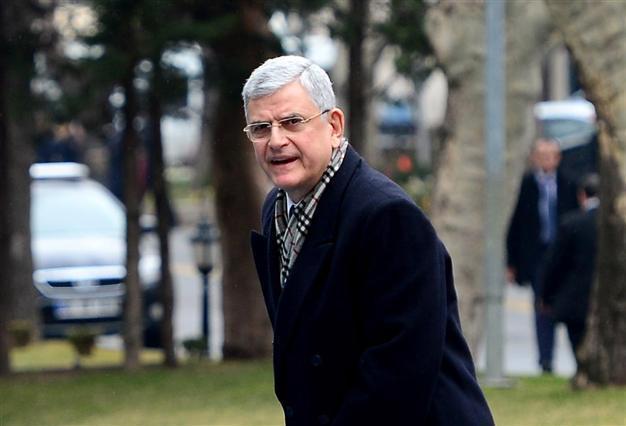I would pick up a gun and seek retribution: Turkey's EU minister
ANKARA

AA Photo
Aggravated life imprisonment would be the appropriate sentence for criminals such as those who brutally murdered university student Özgecan Aslan in an attempted rape on a public minibus, Turkish EU Minister Volkan Bozkır said on Feb. 16, amid heated debates over reinstating the death penalty.“Aggravated life imprisonment would be more appropriate than the death penalty,” Bozkır said, stressing the need to “differentiate personal feelings and the response of the state.”
He said that if it was his own daughter in place of Özgecan Aslan, he might feel the wish to “take arms and seek retribution,” but added that “the state should not react in this way.”
Bozkır condemned the killing of the 20-year-old student, who was found in a riverbed in the Tarsus district of Mersin province, and said the duty of the state is to detain criminals and “to approach everyone within the framework of justice,” Bozkır said.
The death penalty in Turkey was abolished in peacetime in 2002, under reforms aimed at EU membership, by a three-party coalition government led by the Democratic Left Party (DSP). Coalition partner the Nationalist Movement Party (MHP) did not block the government in going ahead with the proposal, but did vote against it.
Apart from the MHP, the votes of all parties represented at parliament were split between “yes” and “no.” Current President Recep Tayyip Erdoğan - at the time the head of the Justice and Development Party (AKP), which was only one-year-old and had only 59 seats - was absent during the vote as he was not yet a lawmaker.
The abolition of capital punishment is a pre-condition for EU entry, and it was abolished totally in Turkey in 2004, two years after Erdoğan’s AKP came to power.
Debate death penalty in light of international treaties: parliament speaker
Citing that citizens have demanded for a death penalty, Parliament Speaker Cemil Çiçek said discussions on the return of the death penalty should be carried considering international treaties binding Turkey.
A debate merely focused a single case would not bring a conclusion, therefore the public should generate a discussion being aware of international agreements, Çiçek told reporters Feb. 16.
Çiçek said he opposed every sort of amnesty, particularly on remission of punishment, because it harms the faith in justice.
Main opposition Republican People’s Party (CHP) Deputy Parliament Group Chair Levent Gök said the debate on the death penalty was “inappropriate,” stressing the need to maintain justice.
“The problem in Turkey is serving justice,” Gök told reporters underlining that the reaction against the government is due to a lack of belief that the government would be able to serve justice.
















